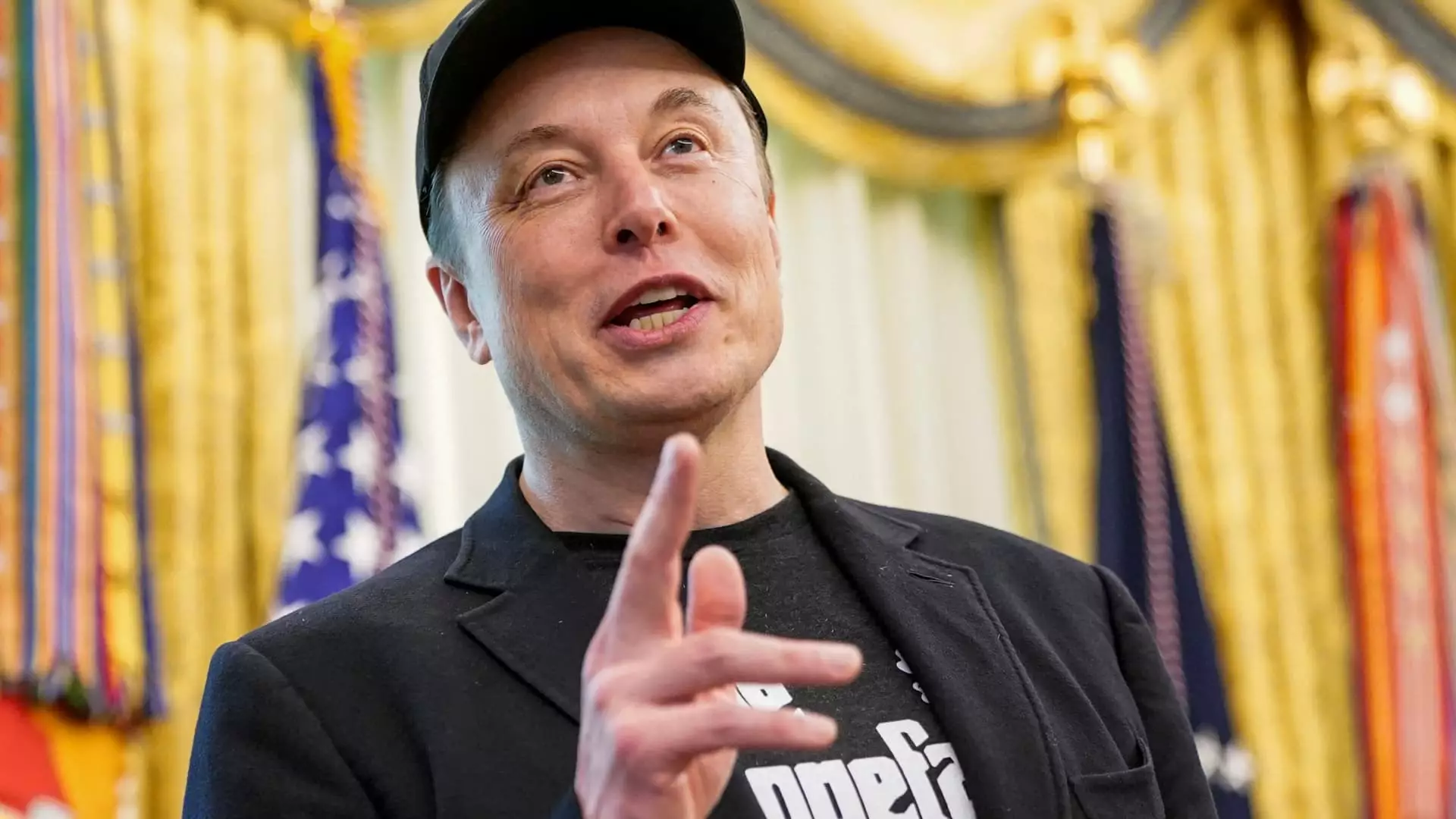In a remarkable display of candor and forthrightness, Elon Musk, the billionaire behind Tesla and SpaceX, has taken a strong stance against a significant tax-and-spending cut bill backed by Trump. Characterizing it as a “disgusting abomination,” Musk’s remarks have sparked waves of discussions around accountability, fiscal responsibility, and the political dynamics that govern such monumental decisions. His passionate critique shines a light on an increasingly polarized political landscape, where even the staunchest supporters can find themselves at odds with policy directions taken by their leaders.
Musk’s Unyielding Outcry
Musk’s declarations are not mere political bluster; they resonate with an underlying concern for the economic future of the United States. It is refreshing and, perhaps, rare for a figure of his stature to voice such strong criticisms, especially against a backdrop of blind allegiance within the political sphere. Describing the bill as “pork-filled” and burdening ordinary Americans with “crushingly unsustainable debt” reveals Musk’s profound understanding of the implications that such financial legislations carry.
In his own words, he lamented that certain politicians knowingly backed a bill that threatens to inflate the federal deficit to a staggering $2.5 trillion, underscoring the immediacy of his concerns regarding national economic health. Such figures, while staggering, serve not just as numbers; they signify real hardships for middle and lower-income families who stand to bear the brunt of this proposed debt through increased taxes or heightened inflation.
Political Fallout and Implications
Musk’s relationship with the Trump administration complicates this critique. While he has been an outspoken supporter of Trump, his recent comments suggest a fracturing within a once-solid alliance. The White House, dismissing Musk’s admonitions, continues to present the bill as a transformative piece of legislation, further entrenching the divisive nature of contemporary American politics. This stark contradiction reflects a broader sentiment where political leaders, irrespective of party lines, often favor exceptionalism over accountability.
Republican supporters of Musk, such as Rep. Thomas Massie and Sen. Mike Lee, underscore a shift among certain factions within the GOP who prioritize fiscal conservatism over party loyalty. By aligning themselves with Musk’s outspoken critique, they hint at a larger discontent brewing within conservative circles against unchecked government spending. This emerging narrative challenges the notion of unwavering party loyalty, emphasizing fiscal prudence as a core Republican value.
The Fight Against the “Uniparty” Mindset
The term “Uniparty,” used by Musk and endorsed by Lee, epitomizes a troubling consensus that citizens are increasingly recognizing—the bipartisan inclination to prioritize spending without adequately addressing the repercussions. This shared culpability crosses party lines, leaving constituents dissatisfied and disillusioned with the political process. Musk’s intervention reminds us that these issues go beyond a single administration; they reflect a systemic failure to engage with core economic problems.
Exposing the close ties between corporate interests and political maneuvers, Musk’s criticisms highlight a recurring theme: that policymakers often prioritize short-term gains for political capital over long-term fiscal stability. This underscores a significant and troubling trend where the voices of affluent business leaders often cut through the noise of typical political debates, yet still, there remains a disconnect between such critiques and the broader citizenry who feel disenfranchised by the political status quo.
A Call for Thoughtful Engagement
In a political climate ripe with misinformation and superficial ideological arguments, Musk’s honest rejection of the fiscal irresponsibility resonates. His perspective, while inherently privileged, acts as a clarion call for all citizens to critically assess the decisions made by their representatives. Advocating for transparency and accountability in governance should not be relegated to the realm of partisan politics, but rather embraced as a shared responsibility.
Musk’s outspoken nature could catalyze broader discussions about financial sustainability, urging not only his followers but everyone to demand more from their elected officials. In an era where apathy can easily take root, his message challenges citizens and policymakers alike to engage in an earnest discourse about the country’s economic future and the ethical implications of fiscal policy.
By fostering this conversation, we may not only hold our leaders accountable but also work towards a more equitable economic framework that benefits all Americans, not just the affluent few.


Leave a Reply